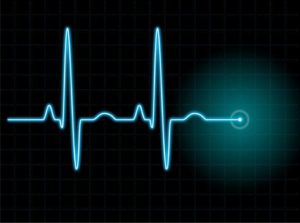“The joint solution will reduce the amount of time needed to integrate an ECK/EKG sensor into an IoT product.”

B-Secur is trying to make it easier for manufacturers to add medical-grade heartrate monitoring to wearable devices. To that end, the company has released a new electrocardiogram (ECG/EKG) solution that combines B-Secur’s HeartKey algorithms with the AFE4950 photoplethysmography (PPG) and ECG/EKG sensor from Texas Instruments (TI).
The joint solution will reduce the amount of time needed to integrate an ECK/EKG sensor into an IoT product. B-Secur is specifically hoping to target the consumer market, and plans to place the ECG/EKG offering in smartwatches and connected heartrate monitors. The technology has obvious applications as a health and performance tracker, though B-Secur suggested that the technology could also be used for biometric identification and authentication.
For now, B-Secur noted that the offering delivers a fully integrated ECG/EKG and PPG signal chain, and claimed that it is the first such solution that enables synchronous cardiac activity sampling with dry electrodes in a battery-powered device. The product can handle electrical and signal processing, and comes with the sensor and software needed for development.
“As more and more wearable and IoT devices adopt ECG/EKG technology, supplying a fully integrated, high-performance solution means our customers around the world can bring their own consumer wearable products to market quicker and with greater confidence,” said B-Secur CCO Ben Carter.
“The trend in consumer electronics is to add more health monitoring into smartwatches and other wearables,” added TI Medical Imaging Product Manager Karthik Soundarapandian. “This, in combination with a patient’s medical history, can help health professionals with early detection and prevention of disease.”
B-Secur formed a similar partnership with Maxim Integrated Products in March, when it announced that it would pair HeartKey with Maxim’s ECG sensors and microcontrollers to deliver a wearable ECG solution. The company raised £4M in funding back in 2019, and its HeartKey algorithms recently obtained the approval of the US Food and Drug Administration.

Follow Us